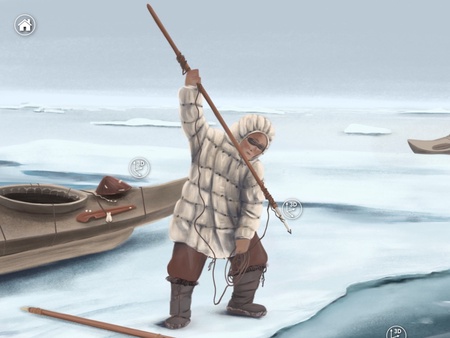Extraordinary archaeological discoveries from a frozen 16th century Alaskan village on the shores of the Bering Sea can now be viewed online for the first time.
The Nunalleq Digital Museum and Catalogue features some 6,000 everyday objects found over a decade of excavations near Quinhagak in western Alaska, including dolls, ceremonial dance masks, jewellery, cooking utensils and sewing tools.
Meaning ‘the old village’ in Yup’ik, Nunalleq is a site dating from 1570-1675 AD. The permafrost has preserved tens of thousands of rarely seen artefacts from wood and other organic materials, and the collections ranks as one of the largest and best-preserved in the world.
Using artists reconstructions and 3D scans, the new resource brings to life Yup’ik life in the past, as told by the Quinhagak community in the present, with visitors able to cycle through the seasons and discover what village life was like before the Euro-American colonisation of Alaska.
The project is a collaboration between the University of Aberdeen, the 3DVisLab at the University of Dundee and Qanirtuuq Village Corporation in Quinhagak, Alaska. It has been funded by the Arts and Humanities Research Council.
Dr Charlotta Hillerdal, lecturer in Archaeology at the University of Aberdeen, said: “The Digital Museum is the latest step in a long-term relationship between researchers and residents of the Native Alaskan village of Quinhagak who first contacted us in 2009 to carry out a rescue dig after seeing their coastline being washed away due to global warming.
“The physical collection of around 100,000 objects is housed in the village’s Nunalleq museum under the curatorial care of the descendant community but its remote location makes it accessible to only a limited number of visitors.
“This unique digital resource gives worldwide access to these important artefacts, alongside reconstructed scenes of life in the area in the 1600s which integrate the crucial Yup’ik perspective into the archaeological interpretations.”


